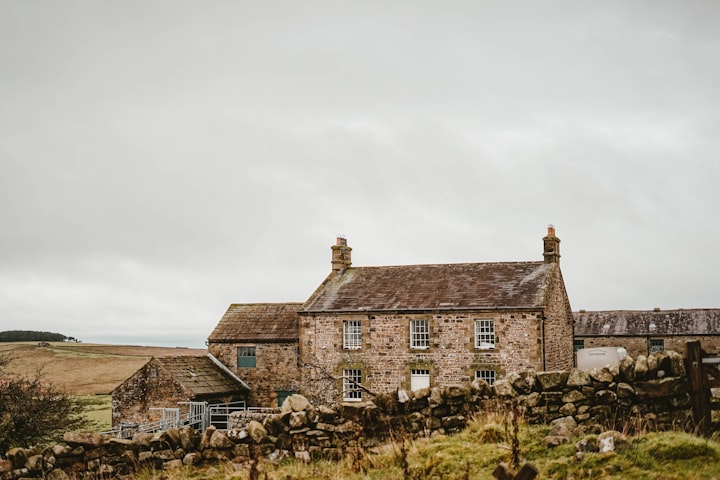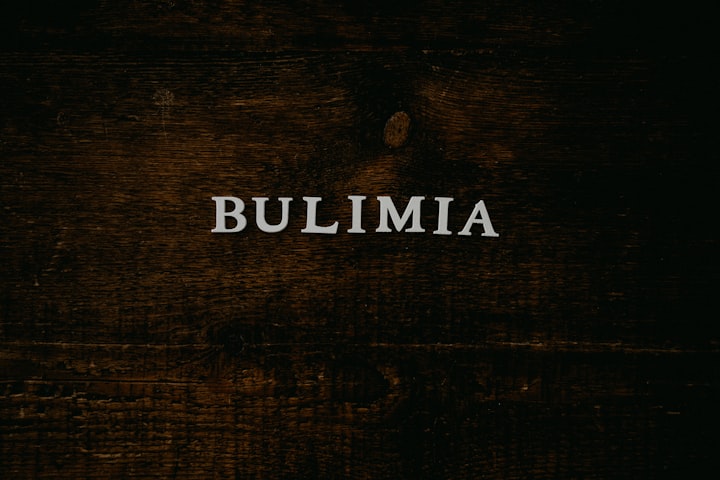Civility, For Better Or Worse?
A brief look into my thoughts on man's progression.

Nature is part of who we are. We are entirely a part of nature that has segregated itself from the environment from which it originated. Once we roamed the plains alongside the great herds that gave us sustenance. Then we built villages to better survive our environment. Later towns began to mark the landscape as we learned to farm and domesticate our food. The first true cities were a far cry from the plains where we used to rest our heads, but inherently safer. Or were they? We no longer feared the dangers of the wild as we had before. With housing came the safety of our walls. The reliance on nomadic herds of food animals soon became a thing of the past as our farms grew larger and our food source more "sustainable". Medicine saved us from the illnesses that once annihilated entire tribes. Yet our self confinement to the luxuries we created for ourselves allowed new illnesses to arise within our society. With change came adaptation and technological advancement. Some for the better.. some not.
To better understand the positive and negative impact our growing species has had on not just the natural world, but our psychological one, it is best to take a brief look at the beginning.
Ancient man was a hardy breed. They had to be to survive the harsh environs they inhabited. Our days were spent in the nomadic pursuit of food and shelter. We followed the herds across continents while enduring the dangers of natures unpredictability. Storms were a merciless force to be feared. Predator’s hunted us as a food source. We were at our most vulnerable yet entirely in our element. We possess an extraordinary ability to rapidly adapt to our environment which evolved into adapting our environment to us. Maybe most importantly of all. We have a deep seeded desire to do so.
Even in the earliest days of humanity’s existence we began to unknowingly sow the seeds for our future advancement. We started as small groups spread across the land. Huddled together for safety and comfort. Wandering together as part of the natural world, not in opposition of it. Somewhere along the line we began to settle down. Caves at first. Then the first primitive housing. For me this is where the “Big Bang” happened for our species. Some would say that communication was the great leap for mankind. That the sharing of each others thoughts was the spring board that launched us into “civility”. While communication was certainly a huge step and a launching point from which our modern selves developed. I believe that the turning point in man’s way of thinking was in the domestication of nature. The moment we erected the first dwelling and made the shift from a completely nomadic society to a semi-nomadic one, we made what may have been the most important decision in our history. We chose to domesticate ourselves. We turned ourselves away from being at the mercy of the violent and unforgiving whims of nature. We enjoyed the safety that our collective ingenuity accrued. We made homes larger and more durable. Our tribes became larger as a result of a more predictable and secure lifestyle. We created the first places where we could gather and share our creativity en masse. From these early frog ponds of civilization we grew larger and more industrious.
We made the next shift when we began to better enact our will on plant life. Our semi-nomadic selves still moved our newly developed societies from place to place as resources dwindled in a chosen area. The herds roamed with the seasons, the plants became less obtainable, and we moved on. Still much a part of nature, but at the same time removed. As we tore down and re-built our little communities each time we settled a new area, we became better and better at it. We had to adapt our methods as each location provided new obstacles to overcome, and new dangers to protect against. We built better stronger homes more quickly. Each new idea implemented lead to more ambitious and creative thinking in all areas of tribal life. The switch was flipped. Our brains were on. The development of agriculture was the final farewell to our prehistoric selves. No longer did we need to uproot our people to forage. We had the power of life in our hands. Nature’s bounty was now ours to command. We feasted with the seasons and enjoyed a quality of life we couldn’t dream of before that point. Life expectancy was longer. Food was more abundant. Creativity thrived. Technology advanced. Our minds formed different ways to reason and understand the world around us. The first makings of civilization was in our hands. Our blessing. Our curse.
With this new found sustainability, mankind thrived. We built more and more cities as our population increased. We expanded and explored the globe. Literature and art became valued practices as our minds developed a thirst for creative knowledge. We tested ourselves again and again to see just how far we could rise up above our not so distant ancestors. As we grew more numerous we began to make more of an impact on the environment around us. Forests began to shrink. We quarried the land and emptied it of its bounty. The higher we built toward the sky, the deeper we burrowed under the earth for gold, stone, and precious gems. We levelled forests and drove the animals out as our need for timber intensified. We began to conquer the earth, and each other.
Entire species of plants and animals have gone extinct due to our need to spread and multiply and change the world around us. Maybe most disturbing of all changes is how we treat each other. Our ancestors worked together as a group to survive the harsh wilderness. Each member was important and valued. A life lost was a huge blow to the community. We have become so populous and so removed from our shared heritage that we kill each other by the thousands to take what we want instead of working together as one people. The value of a human life was never higher than when we recognized the importance of the symbiosis that occurs when we trust and rely on one another. It would not be a stretch to wonder if the value of a life in the modern day is the lowest in history.
Humans have always been fighters. Whether it be fighting to survive harsh climates or fighting for food to survive. Somewhere along the line we began to fight each other. Small scale at first. A tribal war over hunting rights would not be an uncommon occurrence in areas that were home to several tribes in close proximity to one another. We had to fight to eat. Or did we? Why could our ancient ancestors not have worked together to share food among all? How many lives could have been saved if tribal leaders had worked together to feed their collective people instead of risking the very lives they were fighting to feed?
Fighting for food is one thing, but as we expanded and our brains developed, we found new reasons to justify killing each other. Wars over land and religion have been all too common in human history. We find grievances with each other over things that should not matter. We oppress people for not sharing our beliefs. This could make sense if a peoples beliefs might lead to the harm of other individuals, but we as humans routinely wiped out entire civilizations just because they were different or we found them less advanced and therefor unworthy of the life and resources they had built for themselves. We learned to hate too easily and love less passionately. The world was worse off for our emotional shift as a result.
Over time, we slowly began to distance ourselves from one another. Living the separate lives that we built for ourselves. We became greedier and greedier. Life was no longer just about survival. It was about having better than those around you. In many cases, if we couldn’t get better by working for it, we took it. We stopped seeing ourselves as the collective that we are, and focused on our individual advancement instead. Our own lives have become the only thing that matter to us. In a world of violence and greed like the one we have created, it is almost necessary to only look after you and yours to survive. That is the environment that we have built for ourselves.
Of course man’s many accomplishments are not all detrimental to the planet or ourselves. We have achieved great things in our thirst for knowledge and change. The very things that began to separate us in the first place are major milestones for the luxuries we now enjoy. On the whole, most of us live very happy peaceful lives. We enjoy the safety and durability that construction techniques, perfected over time, afford us as we hide from the storms raging outside our homes. Food is more abundant than ever if you are lucky enough to live in a society with enough resources to sustain its populace. Advancements in healthcare and medicine ensure that our fragile bodies last longer and survive more deadly diseases as time goes on. Even violence is a small threat for many in this day and age compared to other points in history.
We are not at a point of no return. We would not have the good without the bad we caused to obtain it. The question moving forward in our society is whether we can begin to strike the balance. Tilt the scales in a new direction. Begin to think of each other as people again. Not objects in each others lives to use and ignore. We look at homeless individuals with disgust and judgment. We tell them what they should have done differently. We highlight their mistakes and blame them for their position in this world. Everyone shares a responsibility for their own survival and success, but so does mankind as its own entity. All of us are also at fault for that man having to sleep on a park bench in the freezing rain. His decisions and actions may have put him there, but why is it not our responsibility as a people, all seven billion of us, to lift that individual up from their circumstances? We have an abundance of resources to make it possible. There is enough food for everyone. Enough medicine for everyone. Even enough homes could be built to house those in need. It appears we no longer have the community mindset our ancestors shared, giving us the compassion to care for one another as we were always meant to.
For all of the distance we have put between modern man and our ancient selves, all the growth, advancements, and adaptations, no matter how sophisticated and civilized we believe we are, emotionally we are more savage than ever before.
About the Creator
Dan Sawyer
Hello! My name is Dan Sawyer. I am a writer who enjoys many genres of literature as well as music, video games, and the outdoors. My goals in life are to live free and happy while hopefully making a living through the written word.






Comments
There are no comments for this story
Be the first to respond and start the conversation.